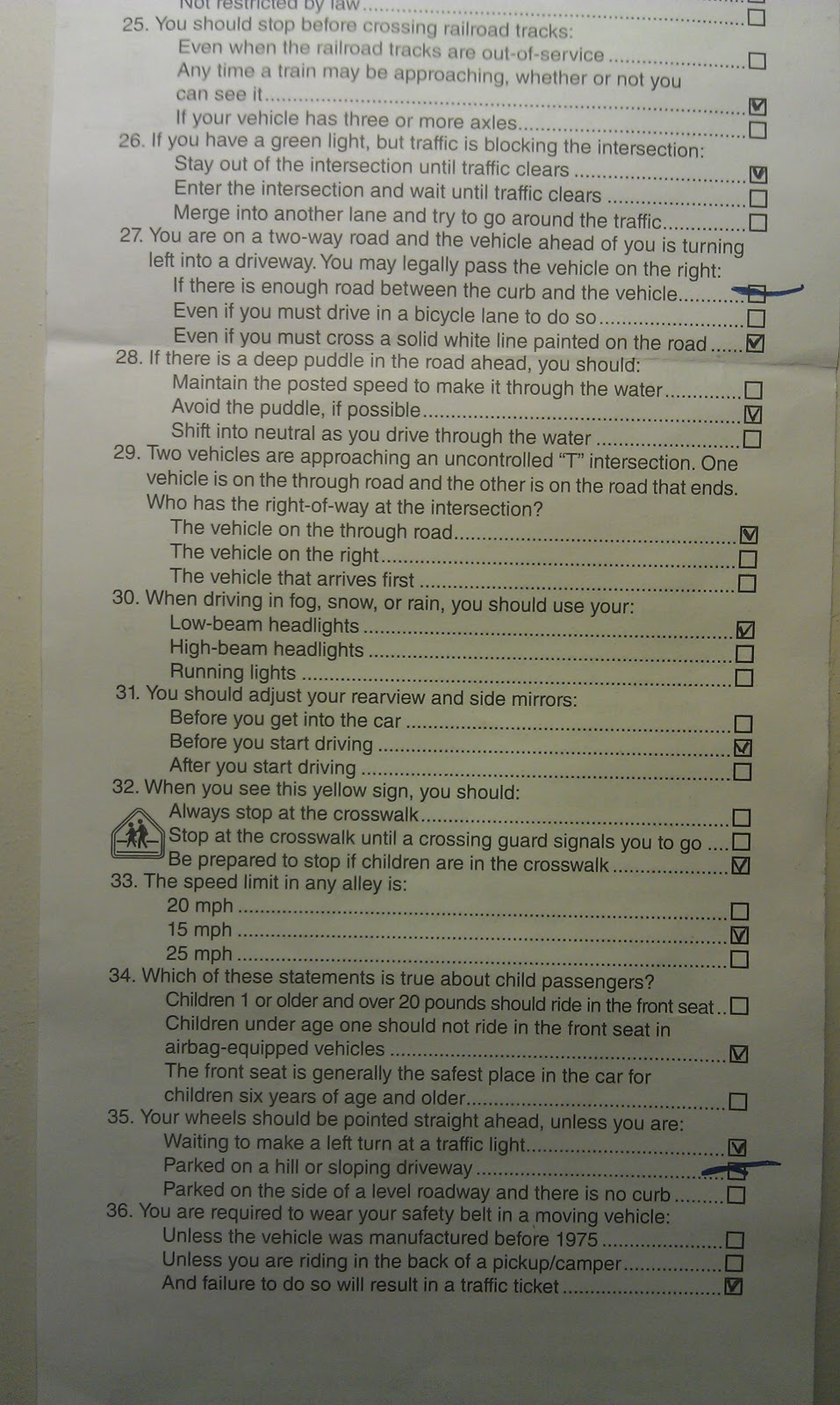Conquering the California Driver's Written Test
Getting behind the wheel in the Golden State is a rite of passage, but first, there's the hurdle of the California driver's written test. This exam, a crucial step towards obtaining a learner's permit or driver's license, often generates anxiety for aspiring drivers. But fear not, with the right preparation and resources, you can confidently navigate this crucial step and be on your way to California cruising.
The California Department of Motor Vehicles (DMV) administers the written knowledge test to assess an applicant's understanding of traffic laws, road signs, and safe driving practices. Passing this test demonstrates that you possess the basic knowledge required to operate a vehicle safely and responsibly on California's roads. Think of it as the foundation upon which your driving skills will be built.
The written exam has evolved over time, reflecting changes in driving regulations and road safety priorities. Early versions focused primarily on basic traffic laws, but today’s test incorporates elements related to defensive driving, sharing the road with vulnerable users like cyclists and pedestrians, and the growing influence of technology on driving behavior. This comprehensive approach ensures that new drivers are prepared for the complexities of modern roadways.
The California driver’s written exam plays a vital role in road safety. By ensuring that new drivers have a firm grasp of traffic regulations, the exam contributes to a safer driving environment for everyone. It’s not just about passing a test; it’s about becoming a responsible driver who understands and respects the rules of the road.
One of the main challenges associated with the California driver's written test is the sheer volume of information covered. The California Driver Handbook, the official guide for the exam, contains a wealth of information, and it's crucial to study it thoroughly. Understanding road signs, right-of-way rules, and safe driving practices is essential for success.
The California Driver Handbook defines various road signs and markings, explaining their meanings and implications for drivers. For instance, a yield sign indicates that a driver must give way to other traffic, while a stop sign requires a complete stop before proceeding. The handbook also details traffic laws related to speed limits, lane changes, and intersections.
Three key benefits of passing the California driving written test include obtaining a learner’s permit or driver’s license, demonstrating knowledge of road safety, and contributing to safer roads. These benefits pave the way for personal mobility, responsible driving, and improved road safety for all.
To prepare for the test, create a study plan that involves reviewing the California Driver Handbook, taking practice tests, and focusing on areas where you struggle. Successful test-takers often utilize online resources and practice quizzes to reinforce their learning.
Before taking the test, ensure you have the required documents, including proof of identity and residency. Arrive at the DMV on time and be prepared for the test format, which typically involves multiple-choice questions.
Advantages and Disadvantages of the California Written Driving Test
| Advantages | Disadvantages |
|---|---|
| Ensures basic knowledge of road rules | Can be stressful for some individuals |
| Contributes to road safety | Requires dedicated study time |
| Standardized evaluation of driving knowledge | Doesn't fully assess practical driving skills |
Five best practices include thoroughly studying the California Driver Handbook, taking practice tests, focusing on challenging areas, getting adequate rest before the test, and arriving at the DMV prepared.
Real examples of test questions often involve scenarios related to right-of-way rules, speed limits, and traffic signal interpretation. The test aims to assess a driver’s decision-making abilities in various traffic situations.
Challenges include test anxiety and difficulty understanding complex rules. Solutions include practice tests and seeking clarification from the DMV or driving instructors.
FAQs often address topics like test format, required documents, and retest procedures. The DMV website provides comprehensive answers to these common questions.
Tips for success include reviewing road signs, understanding right-of-way rules, and practicing defensive driving techniques.
In conclusion, the California driver's written test is a critical step towards obtaining a driver's license. While it can be challenging, thorough preparation, utilizing resources like the California Driver Handbook and online practice tests, and understanding the importance of road safety can greatly increase your chances of success. This test isn't just about getting a license; it's about becoming a responsible and safe driver who contributes to a safer driving environment for all Californians. Take the time to study, practice, and approach the exam with confidence. The open road awaits!
Revitalize your outdoor space exploring fence paint at bm
Unlocking culture the new york times arts coverage today
Finding peace and memories putnam mereness funeral home obituaries












